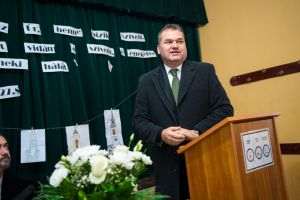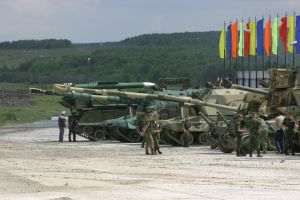Donald Trump's victory in the US presidential elections could have a considerable impact on the political climate in Romania, especially in the context of the presidential and parliamentary elections scheduled for November 24 and December 1. Donald Trump's victory in the US presidential elections could have a ripple effect on Romania, influencing both the strategy of political parties and the perceptions of voters. This could strengthen support for conservative parties such as AUR and SOS Romania, which would benefit from greater mobilization of the conservative and nationalist electorate. Also, pro-European parties could try to capitalize on fears about international stability to strengthen their support, especially among undecided voters who seek stability and predictability. However, the effects could largely depend on the ability of each party to use this international context to its advantage, appealing to the values and concerns specific to its target audience.
The impact of Donald Trump's victory in the American presidential elections can be divided into several categories: the influence on Romanian parties and politicians, the impact on the public and the way in which Trump's victory could shape the electoral strategy of Romanian parties.
• The impact on political parties in Romania
Donald Trump's victory could encourage right-wing and conservative parties in Romania, giving them an additional argument in the campaign. Parties such as Alliance for the Romanian Union (AUR) or SOS Romania could benefit, as they support values similar to those promoted by Trump: cultural conservatism, sovereignty, nationalism and skepticism towards external influences (including European ones). Their message could be strengthened by invoking a wave of conservative change inspired by Trump's victory, encouraging more traditionalist and "national" politics and more vocal opposition to some European Union directives. These parties could use an eventual Trump victory to promote anti-globalist themes and skepticism towards international institutions, including the EU, themes that could resonate with conservative electorates or those who feel disillusioned with the current political direction. The result of the American presidential elections would also lead to an increase in the influence of the conservative, nationalist and even populist discourse in the electoral campaign of the representatives of AUR, SOS Romania and other conservative formations, which could try to borrow from Trump's rhetoric, focusing on themes such as "Romania first," promising to fight "foreign influences" and limit interference from the European Union.
It is thus possible that this conservative momentum will send George Simion to the second round of the presidential elections in a confrontation with Marcel Ciolacu, the PSD candidate. Moreover, if the number of undecided voters, but with nationalist or conservative sympathies, will be raised at the polls, it is possible that AUR and SOS will obtain more percentages than those in the current opinion polls and even reach a worrying 30% together, that is, one third of the seats in the Parliament, which would put in great difficulty any government that will be formed after the parliamentary elections on December 1.
For left-wing parties like the Social Democratic Party (PSD), Trump's victory could represent both a challenge and an opportunity. The PSD, which is trying to position itself as a pro-European center-left party, could use the result to criticize the populist orientation and emphasize the importance of a Romania aligned with EU policies.
In the case of the Save Romania Union (USR), PNL, Forţa Dreptei and Reper, Donald Trump's victory could represent an opportunity to criticize the populist approach and strengthen support for the EU and NATO, emphasizing the importance of a solid transatlantic alliance and a pro-European policies as an alternative to a conservative, illiberal direction.
Trump's victory could lead the pro-European parties to adopt a clearer position and emphasize the importance of democratic, economic and geopolitical stability, advocating for the continuity of relations with the EU and NATO as essential for Romania's security.
• Impact on voters
The election of Donald Trump as the 47th president of the USA has the role of galvanizing voters who sympathize with sovereignist and traditionalist ideas. In Romania, they are particularly attracted to AUR and SOS Romania and their leaders - George Simion and Diana Iovanovici-Soşoacă, for whom Trump's victory gives them a sense of validation and encouragement, feeling that their values are about to win international influence. These voters could be mobilized more active in the election campaign, seeing Trump's victory as a sign that there is a global shift in the meaning of the ideas they support.
For undecided voters, Trump's victory could have mixed effects. Some may be attracted by the nationalist message and promises of sovereignty and the preservation of national identity, seeing it as an alternative to the globalist discourse promoted by the EU. On the other hand, other undecideds, especially those concerned with democratic values and political stability, might perceive a Trump victory as a wake-up call and be encouraged to support parties that promote a pro-European orientation, such as would be PNL, USR and even PSD.
• Impact on foreign relations and national security
Foreign relations, especially the transatlantic ones, could become a more important topic in the Romanian electoral campaign. With the return of Donald Trump to the White House, as president of the USA, it is possible that there will be uncertainties related to the commitment of the USA to NATO and the support that Romania receives as a strategic partner. Pro-European politicians could use this context to emphasize the need to maintain a close relationship with the European Union, and security and defense issues could become top priorities in public discourse, especially in the context of regional tensions in the Black Sea area.































































